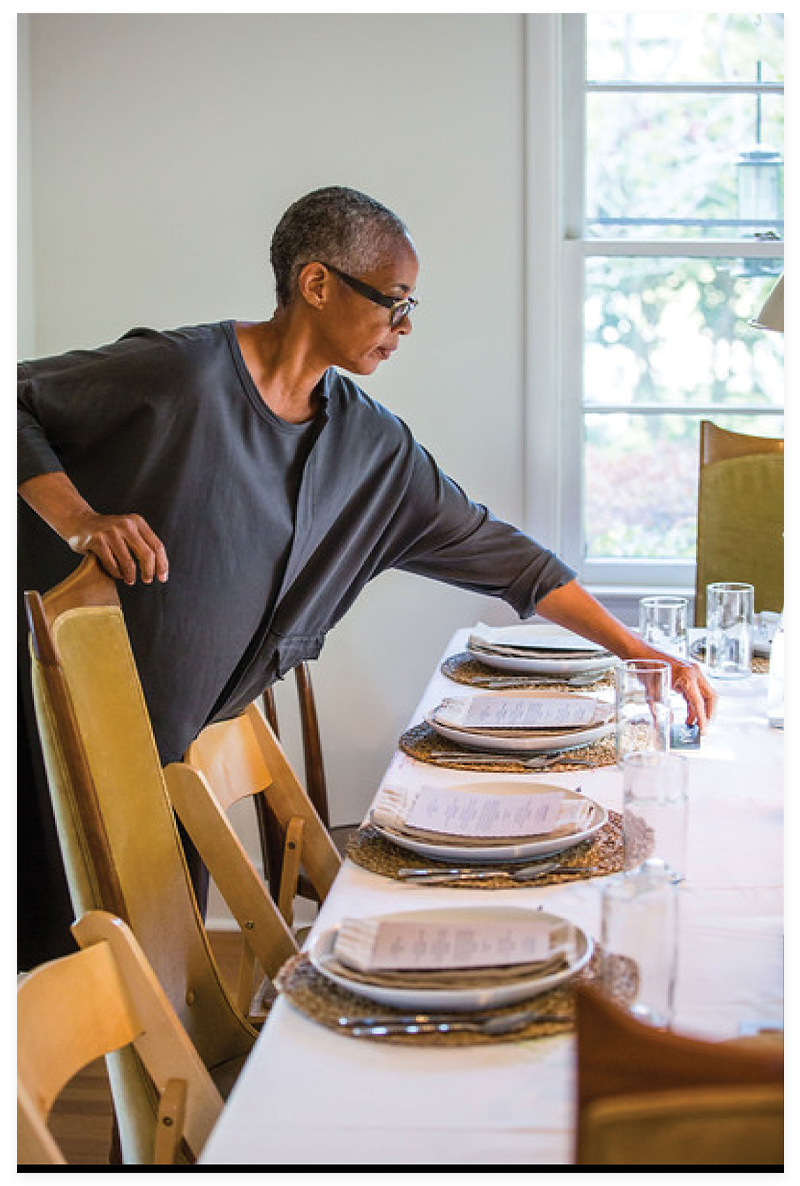
Singleton modeled her Transformation Table dinners on meals she hosted for expats and locals when she lived in Kabul, Afghanistan. “We’ve been told all these barriers exist, but we don’t have to believe that. We just need to let people talk to each other, and food is the easiest way to do that.”
Written By Robin Howard
Portrait By JB McCabe
Can sharing a meal change the world? Tina L. Singleton thinks so. In 2016, the former international development worker founded Transformation Table, an organization that hosts dinners where 10 strangers with different backgrounds and life experiences come together to eat, as well as hear and understand one another. There’s no agenda; the group talks about whatever they want, but in her experience, people always come away with fresh perspectives and new, diverse friends.
A global nomad, vegan chef, and farmer, Singleton has firsthand experience of how food can connect people. While working in Afghanistan, she was frequently invited to Afghan homes for meals. “Whether I was in Afghanistan, Africa, or wherever, those meals were how I got to know the community and the people I would be working with, as well as them getting to know me as a Black American woman,” she says. While in Afghanistan, Singleton began hosting lunches where expats and Afghans shared food from her garden. “Sharing a meal can go a long way toward understanding each other. It’s not about politics; it’s about connecting to our common humanity,” she says.
Singleton was in town on the one-year anniversary of the Mother Emmanuel massacre when she heard Dr. Bernice King speak. King said that if the city was to experience actual change, we needed to go to each other’s homes for dinner, and Transformation Table was born. “My mission is for people to connect and see each other as individuals—not Black, white, Indian, Muslim, or whatever. The easiest and most fun way to find connection points is through food.”
Transformation Table has hosted 43 dinners since its inception, and Singleton says the participants tend to stay connected, both professionally and personally. Though most dinners are hosted in a home, the meals are prepared by global chefs who share their cultural heritage through their cuisine. The groups learn about different traditions and rituals and how people honor others through food.
The organization is piloting a new partner model with the YWCA Greater Charleston, which has a shared mission of ending racism, and plans to extend to other communities outside of South Carolina. As part of Transformation Table’s dedication to inclusiveness, they’ve begun offering a pay-what-you-can model and accessible dinners with accommodations such as wheelchair ramps and adaptive cutlery, as well as ASL interpreters, Braille menus, and bilingual tamadas (facilitators).